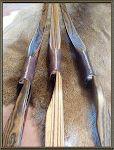Tuesday, September 2, 2008
Hello everyone and welcome to Tuesday Tips #3 - Mulching. Mulching is probably one of the most beneficial things you can do for your garden. If you have never considered mulching your garden in the past, maybe now is the time to reconsider.
Mulches are a labor saving device for all gardeners. Adding a layer of mulch will help to prevent the germination of many different weed seeds, dramatically reducing the need for cultivation or the use of any herbicides. Mulching your garden will also help to moderate the soil temperature and help to retain moisture during dry spells, reducing the need for watering. Mulching also protects the soil from the heavy impact of raindrops that can cause crusting.
While there are many types of mulch, organic mulches such as wood chips, grass clippings, or other locally available materials are best because they help improve the soil by actually adding organic matter back into the soil as they decompose. They may also encourage the growth of worms and other beneficial soil organisms that can help improve soil structure and the availability of nutrients for plants.
Mulching is also used to enhance your gardens appearance. Many of the bark mulches provide a uniformly rich brown color that contrasts with the plants. The mulch also helps keep plants clean by reducing the splash of soil onto leaves during rainstorms.
Here are a few things to take into consideration when choosing a mulch for your garden.
- What is your primary objective in using mulch? If you are most interested in weed control in a vegetable garden, a layer of newspaper covered with grass clippings or just grass clippings themselves will work pretty well. If you are finishing off a beautiful perennial garden in the front of your house, you may want to use something a little more attractive such as bark mulch.
- How long do you want the mulch to stay in place? If you are mulching around shrubs that will remain in place for many years, you might want to use some inorganic mulches such as brick chips, marble chips, or stone. These will not provide your garden with any organic matter to the soil, but they will be permanent. Remember that these are difficult to remove if you change your mind or want to add bulbs or perennials.
- How much money is in your budget? Mulching does not have to be expensive at all. In fact, some communities even offer chipped wood or compost to it's residents. You can use leaves, newspaper, and grass clippings which are all inexpensive mulches.
- How much mulch will you need? To really be effective, most organic mulches need to be piled on between 2 and 4 inches thick. So if your garden is a 10 feet by 10 feet garden mulched 3 inches deep then you will need 25 cubic feet of mulch.
Labels: Gardening tips, Mulching, Tuesday Tips









3 comments:
Great tip this week! I can't imagine gardening without mulch. Not only does it add organic material to the soil but it just finished the whole look off. :) My city offers mulch free of charge if you load it yourself or a small fee for them to load it with a loader.
I used my grass clippings as mulch around everything in my yard. It made it look finished off & it helped provide nutrients to the plants, trees & such. Not to mention it cost me nothing.
Great blog and tip! Mulch is necessary but i would advise to say "no" to cypress mulch... Cypress trees grow in the swamps of Louisiana and provide a natural storm protection barrier as well as necessary habitat for wildlife. I don't even think they should sell it and a lot of the mass retailers are not selling it anymore... btw, thanks for the welcome to Blotanical and I am adding you to my blogroll... look forward to more posts :)
Post a Comment